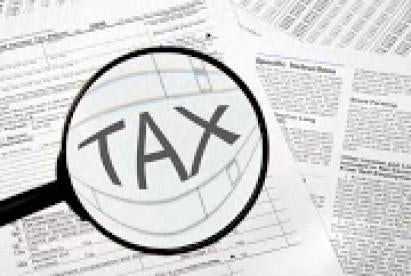A Grain of SALT: April State Focus – South Dakota
On April 17, the United States Supreme Court will hear oral argument in South Dakota’s case challenging the Court’s physical presence requirement for sales tax nexus. South Dakota v. Wayfair, Docket 17-494.
50 years ago, in National Bellas Hess v. Department of Revenue, 386 U.S. 753 (1967), the Supreme Court held that the Due Process and Commerce Clauses of the United States Constitution barred states from requiring remote retailers with no physical presence in a State to collect and remit sales tax. In 1992, the Court affirmed its prior ruling under the Commerce Clause. Quill v. North Dakota, 504 U.S. 298 (1992).
Quill has been at the center of state tax nexus controversy since the time of its issuance, as states have worked to restrict, and taxpayers have worked to expand the scope of the ruling. States and taxpayers have been continually tied up in disputes regarding the meaning of “physical presence” sufficient to trigger nexus. Concerned about the rapid growth of digital commerce, states have advanced increasingly aggressive theories of “physical presence” in an attempt to stem the loss of sales tax revenues from internet sales. Taxpayers, on the other hand, repeatedly have sought to apply the physical presence nexus standard to other types of taxes, principally income tax. Until South Dakota v. Wayfair, the Supreme Court declined to accept review of any case seeking further guidance with respect to the physical presence nexus standard.
In 2015, in a concurrence issued in Direct Marketing Association v. Brohl, 135 S.Ct. 1124 (2015), Justice Kennedy strongly signaled that the Court was ready to reconsider the physical presence nexus standard. In his concurrence, Justice Kennedy stated that given changes in technology and consumer sophistication, it would be “unwise” to delay any longer a reconsideration of the Court’s holding in Quill. Justice Kennedy went on to characterize Quill as “[a] case questionable even when decided,” and suggested that the decision “now harms States to a degree far greater than could have been anticipated earlier.” According to Justice Kennedy, Quill “should be left in place only if a powerful showing can be made that its rationale is still correct.”
Not surprisingly, states responded aggressively to Justice Kennedy’s remarks by enacting laws or adopting regulations that directly challenge the physical presence nexus requirement. In South Dakota, the state legislature amended its sales tax nexus statute, on a going-forward basis, to incorporate an economic nexus standard triggered by at least 200 South Dakota sales or $100,000 in South Dakota sales revenue in a calendar year. When Wayfair successfully challenged the constitutionality of the new nexus statute before the South Dakota Supreme Court, the stage was set for United States Supreme Court review.
As of the date of this publication, 38 amicus briefs have been filed in connection with the South Dakota v. Wayfair appeal. In addition to considering the physical presence nexus standard, the Court may address the issue of retroactivity in its ruling, in response to concerns expressed that states other than South Dakota might seek to give retroactive effect to any ruling that rejects the physical presence nexus standard. The international tax community is also watching the appeal with interest, given the United States government’s active involvement. If the United States argues that states have the power to tax sales to state residents by out-of-state retailers, what does this mean for the international front, as non-US countries attempt to tax digital sales income?





 i
i


